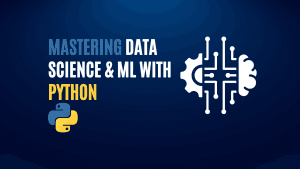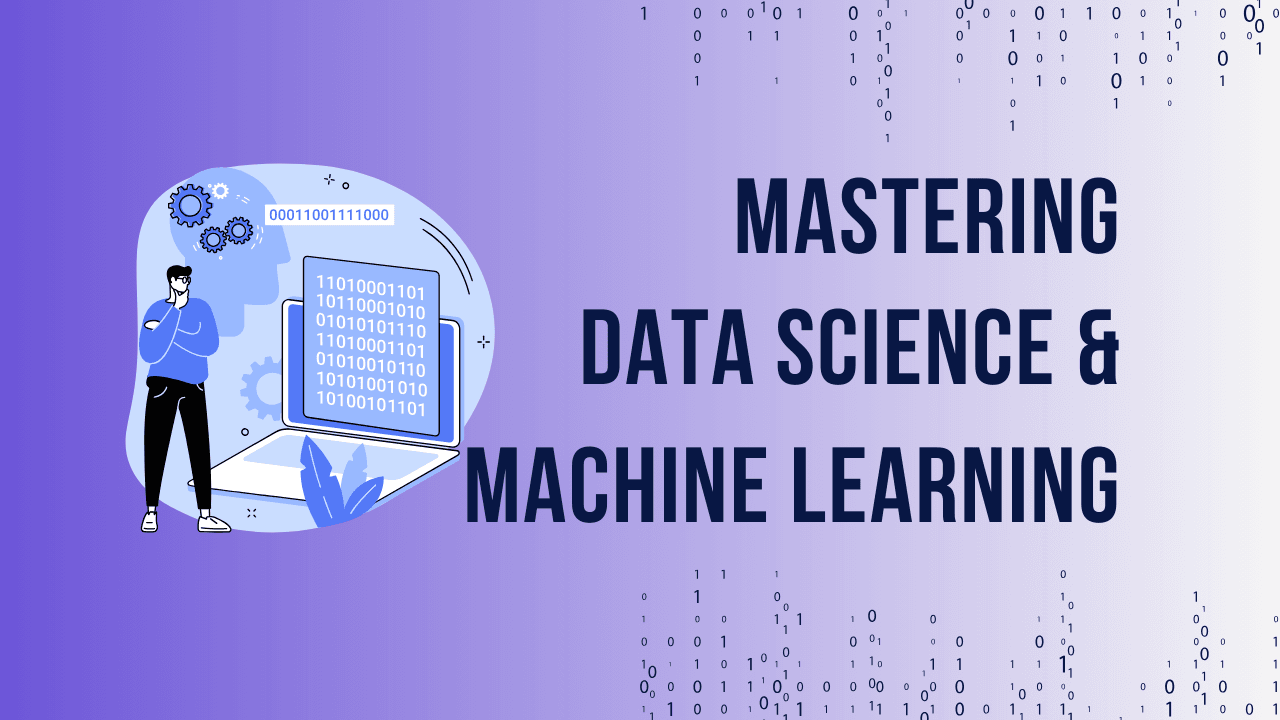Yes, it is possible to learn data science in 6 months, but it requires dedication, consistent effort, and a well-structured learning plan. Here’s how you can approach it:
Table of Contents
ToggleBasic Foundations (1-2 months):
- Learn Python: Focus on essential programming skills, especially in Python, which is widely used in data science.
- Mathematics: Understand the basics of statistics, linear algebra, and calculus. These are crucial for data analysis and building machine learning models.
Ready to take you Data Science and Machine Learning skills to the next level? Check out our comprehensive Mastering Data Science and ML with Python course.
Our Students Testimonials:
Core Data Science Concepts (2-3 months):
- Data Analysis: Learn how to work with data, including data cleaning, manipulation, and visualization using libraries like Pandas, NumPy, and Matplotlib.
- Machine Learning: Study machine learning algorithms such as regression, classification, clustering, and decision trees. Practice using libraries like Scikit-Learn.
Hands-on Projects (2 months):
- Real-world Projects: Apply your knowledge by working on real-world data science projects. This could include analyzing datasets, building predictive models, and creating visualizations.
- Capstone Project: Develop a capstone project that showcases your ability to handle an end-to-end data science problem, from data collection to model deployment.
Specialization and Deepening Knowledge:
- Advanced Topics: Explore more advanced areas like deep learning, natural language processing (NLP), and big data technologies if they align with your interests or career goals. Tools like TensorFlow, PyTorch, and Hadoop can be beneficial here.
- Domain Expertise: Start focusing on a specific domain where you want to apply data science, such as finance, healthcare, marketing, or e-commerce. Understanding the domain’s unique challenges and data will make your work more impactful.
Building a Portfolio:
- Document Your Work: Keep a record of all the projects you’ve completed, along with detailed explanations of the problems you solved, the approaches you took, and the results you achieved. GitHub is an excellent platform for showcasing your code, while a personal blog or website can be used to share insights and tutorials.
- Case Studies: Write detailed case studies of your projects to demonstrate your problem-solving skills and the value you’ve delivered. This will be useful for job applications and interviews.
Networking and Career Growth:
- Join Professional Networks: Engage with other data science professionals on platforms like LinkedIn, attend data science meetups, conferences, and webinars to expand your network.
- Seek Mentorship: Find a mentor in the data science field who can guide you, provide feedback on your work, and help you navigate your career path.
- Job Applications: Start applying for internships, entry-level data science positions, or freelance projects. Tailor your resume and cover letter to highlight the skills and experiences most relevant to each role.
Continuous Learning and Adaptation:
- Stay Updated: The field of data science is rapidly evolving, so it’s crucial to stay updated with the latest tools, techniques, and industry trends. Follow blogs, podcasts, and research papers from leading experts in the field.
- Experiment and Innovate: Don’t hesitate to experiment with new techniques, tools, or approaches. Innovation often comes from trying something different or combining methods in unique ways.
Contributing to the Community:
- Open Source Projects: Contribute to open-source data science projects to gain experience and visibility in the community. This can also help you learn from more experienced contributors.
- Teaching and Sharing Knowledge: Consider teaching others what you’ve learned, whether through blog posts, YouTube tutorials, or by hosting workshops. Teaching is a powerful way to reinforce your own knowledge and establish yourself as a thought leader in the field.
Ready to take you Data Science and Machine Learning skills to the next level? Check out our comprehensive Mastering Data Science and ML with Python course.



